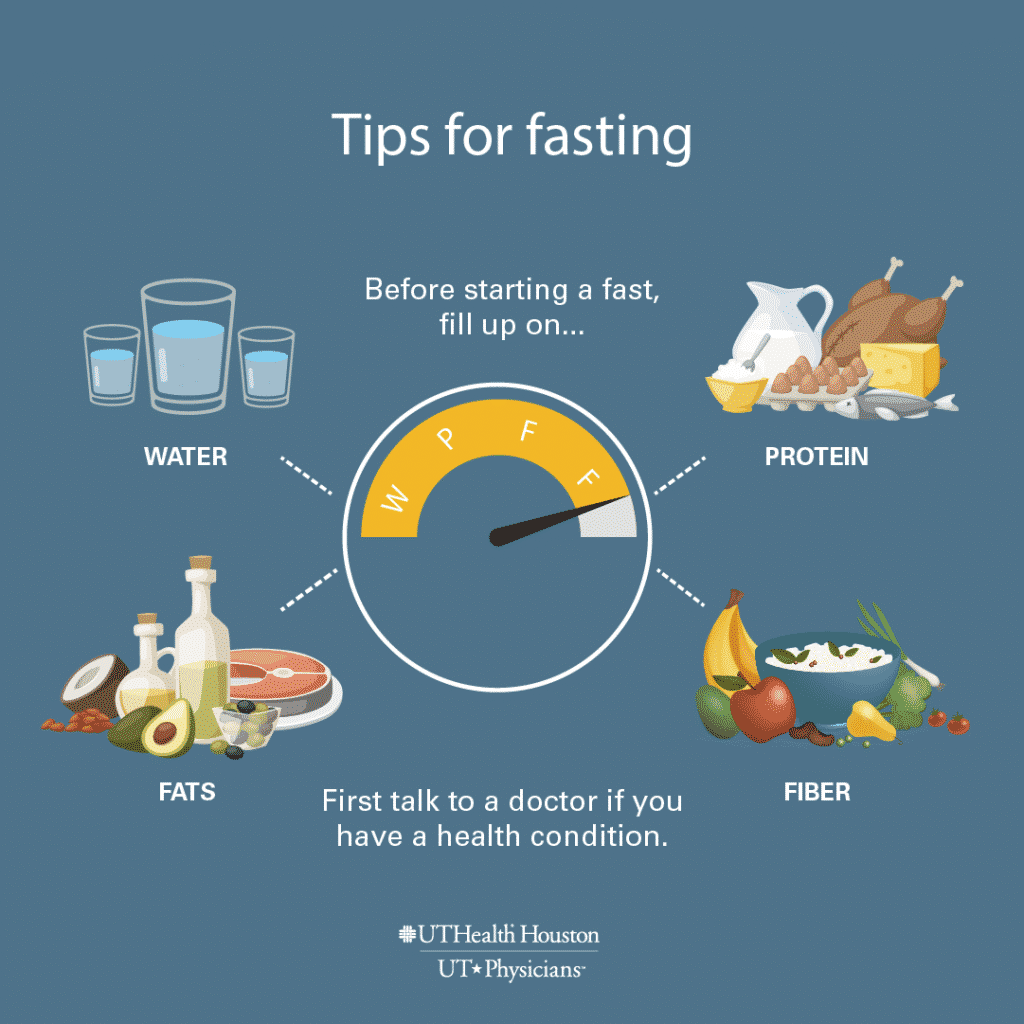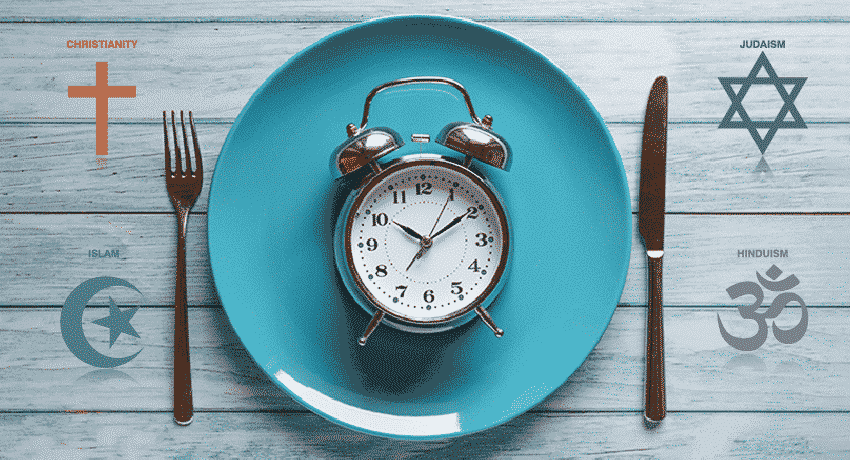Fasting is a practice of many religions around the world. It is not a choice for some people but rather a necessary act of faith, worship, or spirituality.
Though it is not intended to be comfortable, there are some ways to help curb hunger and thirst during fasting. Ann E. Redwine, RD, certified diabetes care and education specialist with UT Physicians Multispecialty – Dashwood, shares pre-fast diet tips for any religious holiday.
First, talk to your doctor
Fasting is a period without meals — and water in some religions — that normally lasts 12-40 hours. Though fasting is not considered dangerous for a healthy person, it is quite the opposite for a person with a health condition.

“People with hypoglycemia or diabetes, for instance, must be very careful during fasting because it will impact their blood sugar levels. Their medication may need to be adjusted during this period,” Redwine said. “Talk with your doctor if you have a health condition. Your doctor will tell you the precautions you need to take to fast safely.”
The following are four key tips for healthier, easier fasting during a religious holiday.
Fill up on water
For a fast that runs 12 hours or longer, it is necessary to drink 2 liters (8 cups) of water before the fast or during the hours when drinking is allowed.
For anyone who may work outside and lose fluid through sweating, try to drink a sports drink (example: Gatorade) before the fast. The sports drink will replace salt and electrolytes lost in sweat. However, do not consume too much salt or water.
“Too much salt will make you thirsty, and too much water can flush the electrolytes from your body. Most people do not need more than a gallon [16 cups] of water per day, and most need much less,” Redwine said.
Fill up on protein
It is best to dine on plenty of protein prior to a fast. Foods high in protein slow down the body’s digestion. The food stays in the stomach longer and prevents hunger. The proteins can be animal-based, such as tuna, eggs, or milk; or plant-based, such as nuts, beans, or tofu.
Fill up on fats
Before a fast, it is smart to eat foods high in healthy fats. Avocados, nuts, and peanut butter are just some examples. Fats take longer for the body to digest and help stabilize blood sugars. This will help control hunger. Though less healthy, butter and other foods with saturated fat will also work.
Fill up on fiber
High-fiber foods should also be on the pre-fast menu. These foods include whole-grain bread, vegetables, brown rice, and legumes. For optimum “fuel,” opt for nuts, chickpeas, beans. These plant-based nuggets are full of fiber and protein!
Different religions, same bodies
Fasting is a universal practice. People may fast on different holidays and for different lengths of time, but their bodies all function the same way. Regardless of religion, it is sensible for a person to fill up on water, protein, fat, and fiber before starting a fast.
“Whether it’s for Lent, Ramadan, Yom Kippur, or other holy holiday, people can drink and eat foods that better prepare their bodies for a fast,” Redwine said. “These tips may not make the hunger or thirst go completely away, but they can make the fasting period a little less difficult.”
Religious holidays with fasting practices – 2022
April 2 – May 2 (tentative): Ramadan (Islam)
No eating or drinking from sunrise to sunset each day. (approximately 13 hours in the U.S.)
April 15: Good Friday (Catholicism)
Only one full meal that day or two smaller meals that together equal a full meal.
Aug. 18-19: Janmashtami (Hinduism)
No eating except for some fruit from approximately midnight to midnight the next day. (24 hours)
Oct. 4-5: Yom Kippur (Judaism)
No eating or drinking from sunset to one hour after sunset the next day. (25 hours)
This list is only a sample of religious holidays with fasting practices and is not meant to be all-inclusive.

Before starting a fast, fill up on water, protein, fats, and fiber.
First talk to your doctor if you have a health condition.



